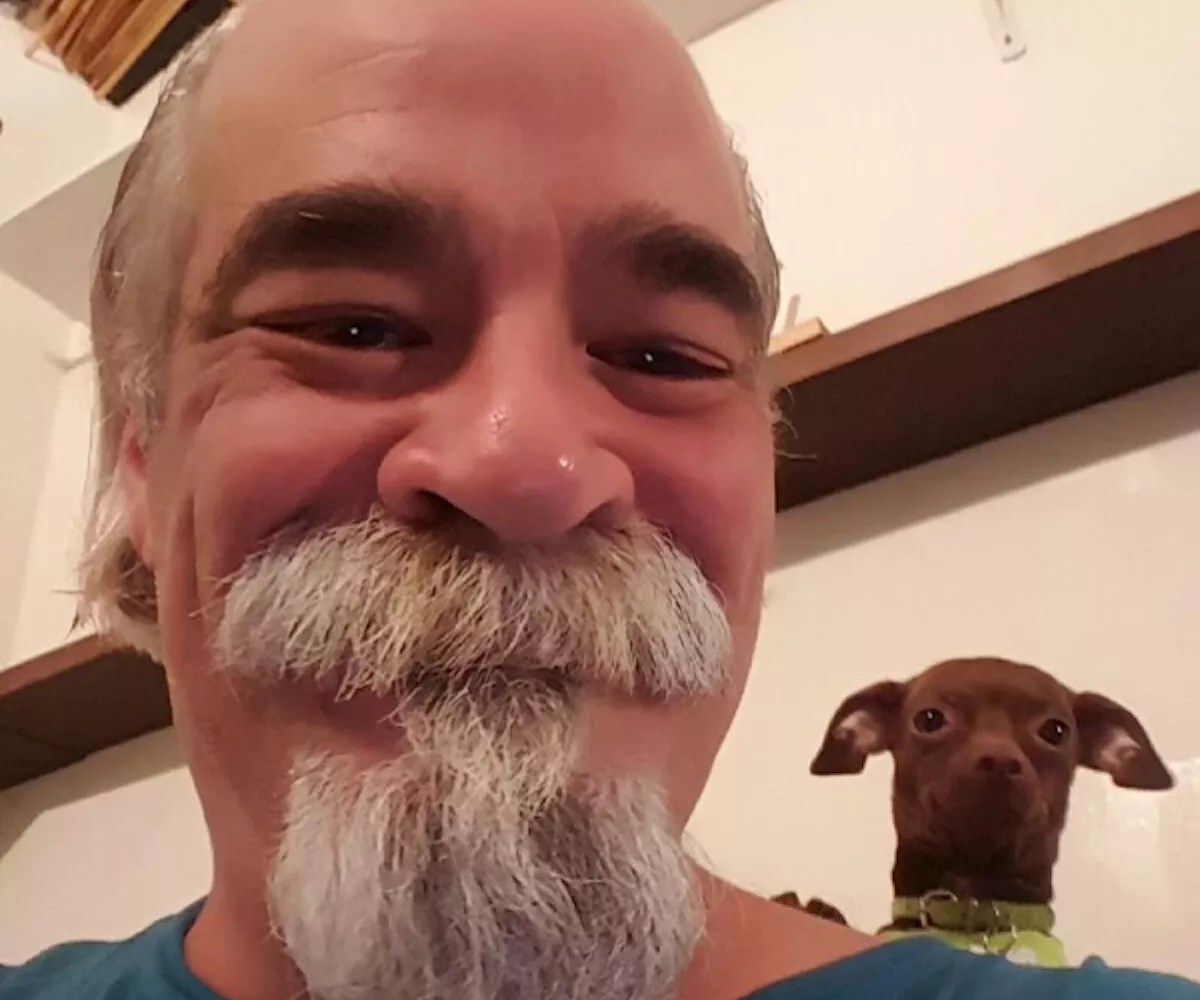
Photo courtesy of Carlos Suarez de Jesus’ family

Audio By Carbonatix
Carlos Suarez de Jesus was a uniquely Miami renaissance man.
As New Times’ art critic for a decade, he helped create what has become the world’s liveliest and most enterprising art scene. Before that, he was a writer for two Miami mayors. And as a teenager, he worked in the epicenter of the city’s bustling 1980s cocaine market, the Mutiny Hotel. Later he occasionally delivered the white stuff from the back of an ambulance.
He was also my dear friend and a doting father who loved to talk about his children. After Carlitos died in his sleep on February 3, his daughter, Bethany, wrote this on his Facebook page:
“My father was an incredibly brilliant and delightfully odd man who touched the lives of so many through his art, writing, and storytelling. He was a father, grandfather, son, brother, uncle, husband, mentor, and friend…and so much more throughout his action-packed and unforgettable life.”
Carlos was both brilliant and Cuban American to the core. He had an amazing guayabera collection and an encyclopedic knowledge of Santería. He wasn’t showy, though. He was a modest guy.
In an uncharacteristically first-person story in New Times titled “Cocaine and Me: A Memoir,” edited by my predecessor as the newspaper’s czar, Jim Mullin, Carlos told the story of starting work at the Mutiny, which he called “the Taj Mahal of debauchery,” at age 17. He was required to deliver pot and pastelitos to the clientele. There were strippers and “Peruvian flake” parties, guns, and veiled threats.
Later, Carlos became an emergency medical technician and occasionally sold drugs from the back of an ambulance. When he had the stuff, he’d make a coded call out on the radio: “Tengo la Turka.” Then the orders would flood in.
Not to forget the high-end wedding at the Four Ambassadors that ended with a massive Egg McMuffin banquet at a McDonald’s.
But even in the early 1980s, when Carlos was barely 20, the business that would make Miami infamous was getting increasingly violent and dangerous, so he beat a retreat.
“I didn’t have the stones to continue risking jail time or worse, and I had a newborn at home,” he wrote. “So I called it quits in the summer of 1982 and went back to school.”
Carlos earned a degree in journalism and then scored jobs at county hall with Mayors Steve Clark and Alex Penelas, as well as county commission chairman Arthur Teele. He rarely talked about those jobs with me, but I was the county hall reporter for the Miami Herald in those days, and all I can say is that its day-to-day shenanigans made the Mutiny’s questionable behavior look like kid stuff. Carlos’ rectitude, wisdom, and kindness, however, allowed him to survive unscathed.
He began writing for New Times in 2003, not long after Art Basel hit town. He was also an edgy artist who created a gallery space in Little Havana and produced fascinating visual work. Indeed, he was always a champion for the neighborhood that has long represented the city’s international character.
In the role of critic – as former New Times culture editor Ciara Lavelle put it – he “broke some of the city’s most interesting art stories, from the departure of FriendsWithYou to AholSniffsGlue’s eyeball motif getting ripped off by American Eagle. He interviewed Purvis Young and told readers when Bernice Steinbaum closed her legendary gallery.”
He’d call me “capo” whenever he was ready to tell a tale. He’d smile that raw, mustachioed smile, and his eyes would light up. He was a born raconteur.
Carlos took amazing care of his mom, who had Alzheimer’s. His own health problems began when he had a stroke in 2016, and then in the following two years, there were heart issues. Extensive stents were inserted. He was left homeless and destitute.
Artists including Sinisa Kukec, Randy Burman, and Christina Gast came to his rescue, raising almost $6,000 for his care.
The man was loved.
Carlos called the gifts “a Christmas miracle,” adding: “It is with a renewed sense of hope that I shall forge ahead with dignity and peace in my heart, secure that I will meet any challenges the future may bring.”
A celebration is planned for what would have been his 62nd birthday, Sunday, March 6. If you have something you want to say about this Miami giant, though, you don’t have to wait. Bethany has invited everyone to post photos and memories on Carlos’ Facebook page.
Chuck Strouse was managing editor and then editor of New Times in Fort Lauderdale and Miami from 1998 until 2019. He teaches journalism at Florida International University.